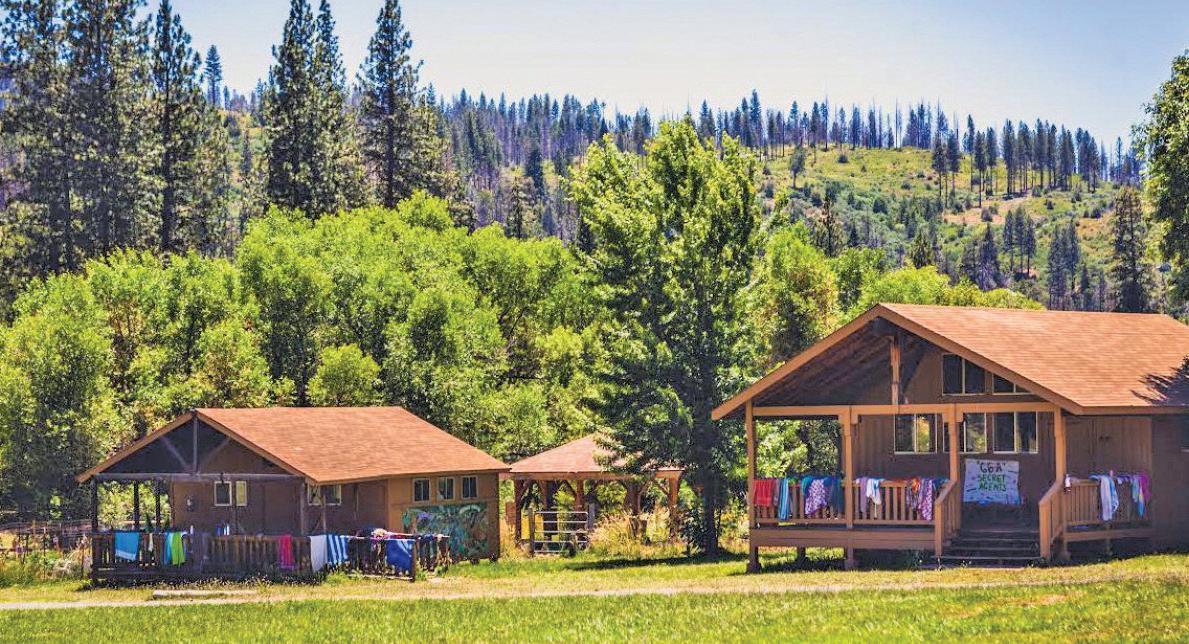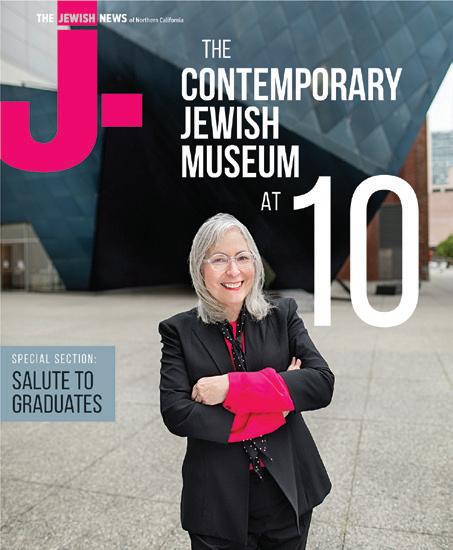
6 minute read
How Jewish summer camps are preparing for the coronavirus
BEN SALES | JTA
As swine flu swept through the United States in the late spring of 2009, Jewish summer camps took some drastic measures.
Advertisement
One set up a quarantined area where some 45 infected kids and counselors lived apart from the rest of the camp. Another took every camper’s temperature twice a day and sent children home if the result topped 100. The measures were onerous, but campers got used to them.
That experience is weighing on the minds of Jewish camp directors as they look ahead to a summer season that may well be held in the shadow of another public health crisis.
Directors say they are not yet worried that summer camp, still three months away, will be substantially curtailed by the coronavirus — even as synagogues are shuttered, Jewish day schools are closed and international travel is curtailed. But they are beginning to make preparations to ensure camp operates this summer as normally as possible.
“We’re going to do everything we can, if it’s legally permissible, to operate our summer camps,” said Rabbi Mitch Cohen, the national director of Camp Ramah, the Conservative movement’s network of summer camps.
Cohen suggested that Ramah may implement a policy whereby if a kid has been overseas within two weeks of camp starting, they must wait before coming. He also is considering hiring additional medical professionals across the camps, or setting up separate infirmaries for kids who are showing symptoms of COVID-19.
At Camp Sprout Lake in upstate New York, one of five overnight camps affiliated with the Young Judaea Zionist youth movement, director Helene Drobenare has already ordered 26 cases of hand sanitizer and had cleaning staff disinfect the entire facility. She is uploading games and Hebrew exercises to the camp website for kids to occupy themselves while their schools are closed.
“While we know this remains a dynamic situation, as of today camps are determined and fully plan to go ahead with operations this summer,” Jeremy Fingerman, CEO of the Foundation for Jewish Camp, said in a statement.
The foundation, a nonprofit that supports Jewish summer camps, canceled its biennial conference slated for this week in Baltimore and moved everything online. The schedule will now include two sessions on coronavirus: one about strategies for supporting staff and families and the other on crisis communications.
“Summer camps may, in fact, be one of the safest places for any child to be this summer, since they are generally protected, remote and closed environments,” Fingerman said.
If camp is meaningfully curtailed this summer — and that’s a big if — it would be a shock to American Jewish life. Jewish overnight camp is a rite of passage for more than 80,000 Jewish children each summer. For many it is the physical and emotional space where their Jewish identity is formed.
At most Jewish camps, the campers observe Shabbat, learn a little Hebrew, celebrate Israel, and eat, breathe and sleep among Jewish peers. In the more religious camps, the kids eat strictly kosher food and pray daily. The most dedicated Jewish campers come back summer after summer, then become counselors and sometimes send their own kids to the same camp they attended.
“I did a shiva visit Saturday night, and a group of parents came to me and were like, ‘You better not cancel camp, you better not cancel camp. We gotta get our kids out to camp,’” Cohen said. “They’re canceling school. Camp is the only thing they’re looking forward to.”
For now, camps say they expect programming to take place as expected. The Union for Reform Judaism, which operates a network of 15 overnight camps with a total of about 10,000 campers, said in a statement to the Jewish Telegraphic Agency that it is in close communication with parents and staff about the coronavirus.
“Summer programming is expected to take place as
MORE WAYS TO GET YOUR JEWISH NEWS AND VIEWS!


CHOOSE ONE OR ALL OF OUR E-NEWSLETTERS:
Views & Opinions Tuesdays Arts & Events Thursdays Best of the Week Fridays
Get highlights of the week’s Bay Area Jewish news and culture stories, as well as columns, op-eds, obituaries and lifecycle announcements, on your mobile device and computer via email.
THE JEWISH NEWS of Northern California
sign up at jweekly.com/newsletter

Bay Area Jewish camps are planning to go ahead with summer sessions. Shown above are Camp Tawonga camper cabins. planned,” the URJ said.
If parents do end up pulling their kids out due to the coronavirus, Cohen said he was commi ed to giving them a full refund — even if that means cu ing back on expenses. Ramah has 10 overnight camps across North America.
“I don’t think this is an existential threat to Ramah,” he said, regarding the possibility of mass refunds. “It will be devastating. It will create a tremendous burden for us in philanthropy. “Our stronger camps have reserves that they can get through this. Our weaker camps, or smaller, or camps with less reserves could be destroyed, but that’s when the movement will have to step in and will have to help out.” Many Jewish camps also hire a contingent of staff from Israel and elsewhere overseas. Across the Ramah network, 20 percent of the staff is from abroad. Drobenare employs 40 Israeli counselors at the three camps she directs — one overnight camp and two day camps.
With travel restrictions growing in recent days, both Cohen and Drobenare said there is a possibility that Israeli and other foreign staff won’t be able to come to the U.S. Ramah and Young Judaea also run summer trips to Israel that could be threatened by the travel bans, though they are hopeful that the restrictions will ease by the summer. Ramah also runs a high-school semester program in Israel that, as of press time, was ongoing.
For now, concerns about summer camp remain speculative. Parents are mostly worried about whether their kids will a end school next week, not camp this summer. And in any case, Drobenare said, camp directors are used to uncertainty.
“This is what camp directors do,” she said. “We’re not used to COVID-19 but we’re used to crisis management. Camp directors right now are staying calm and being like, get your communication, get your parents, get your teams together and we’re gonna ride this out.” ■
Jeremy Fingerman





Subscriptionless
in the San Francisco Bay Area? We can fix that!
Get Bay Area Jewish news and culture stories, as well as op-eds, obituaries, lifecycle announcements, calendar and more.
Subscribe or renew now.
City, State, Zip ________________________________________________ Phone ( ) ________________________________________________
q One Year $46.50 q Two Years $79 q Three Years $99
Choose payment option q Check: Make out to: J. The Jewish News q Credit card: q Master Card q Visa q American Express
THE JEWISH NEWS of Northern California Mail to: J. The Jewish News of Northern California 225 Bush Street, #480, San Francisco, CA 94104 or call 415-263-7200, x10 or online at www.jweekly.com/subscribe










